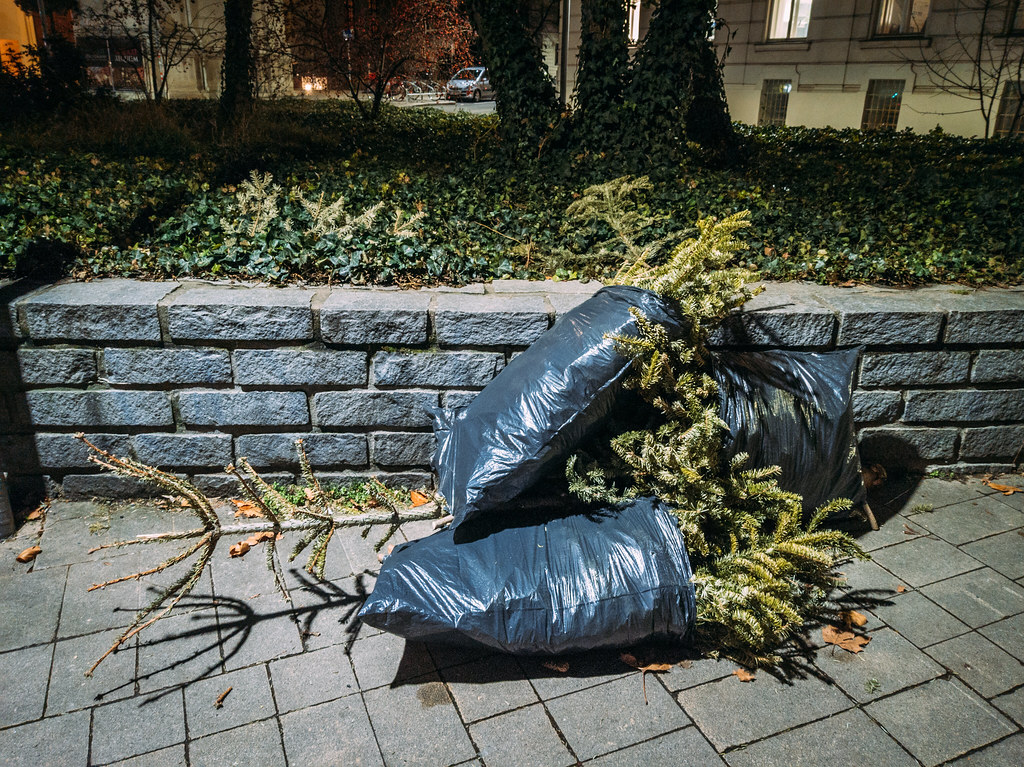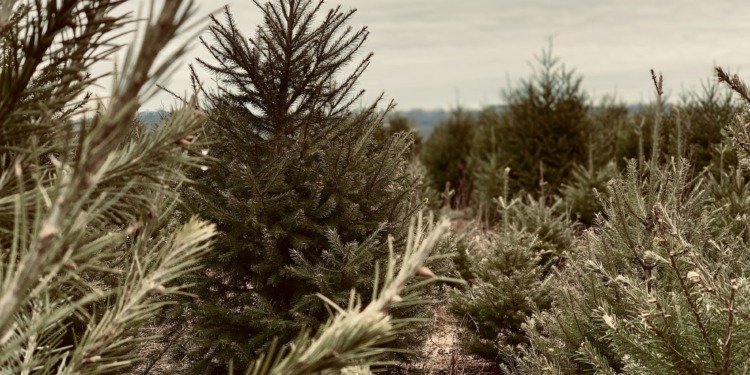Real Christmas trees are not a threat to the environment if grown sustainably and locally. However, unethical farming techniques or unchecked forest exploitation are harmful to the ecosystem. Furthermore, reckless disposal of the actual Christmas trees will also harm the environment.
The Most Wonderful, Yet Wasteful, Time Of The Year Has Come
It is believed that people have greater detrimental effects on the environment in December than the rest of the year.
During this Christmas season, we purchase, consume, travel, and pollute more than ever, creating 5.5% of the annual global carbon footprint.
Christmas trees are one well-known example of this environmental impact: after several years of development, we cut them down to adorn our houses for a few weeks just to toss them away at local rubbish dumps.
Real Christmas trees that are not properly recycled and instead end up in landfills release a substantial carbon footprint.
Eventually, those trees will degrade and release methane, an unpleasant gas that poses a significant hazard to both human health and the environment.

More Waste to Come
Every year, millions of Christmas trees are grown and harvested in the United States and Europe.
These are often fir trees cultivated expressly for the Christmas season. The environmental impact is large enough that it should not be overlooked, and many people wonder whether such annual reductions are justified.
Concerns have also been raised about the survival of particular conifer species, which are threatened by the deforestation produced by these regular cuts. Based on The Global Trees Campaign, over 200 species of conifers are on the verge of extinction worldwide.
A Christmas tree farm, like any other farm, requires specific supplies for trees to thrive. Farms that seek to cultivate tree species that do not ordinarily thrive in that place have the potential to harm the ecosystem.
Additionally, when trees are not cultivated on farms, unregulated forest exploitation can result in serious environmental imbalances, climate change, and natural disasters that endanger wildlife habitats.
The usage of pesticides, however, is likely the most common concern with genuine Christmas trees. Toxic pesticides and synthetic fertilizers are used for years before harvesting in conventionally cultivated Christmas trees.
The Center for Biological Diversity also reports that eight pesticides account for 85% of all Christmas tree uses: chlorothalonil, atrazine, simazine, glyphosate, hexazinone, carbaryl, chlorpyrifos, and dimethoate.
As a result, these toxic substances can cause cancer, hormone (endocrine) disturbance, neurotoxicity, organ damage, reproductive/birth defects, asthma, and other health problems.
Additionally, a North Carolina State University research found that the majority of the state’s Christmas tree farms employ the insecticides bifenthrin and glyphosate (Roundup) to treat 42.9 and 97.5% of all tree acres, respectively.
Glyphosate has caused significant harm in recent years, and the World Health Organization has classified it as “probably carcinogenic to humans.”
That is why organic tree farms that avoid such pesticides would be the greatest option for real Christmas trees.
Although many people assume that authentic Christmas trees harvested from wild forests lead to deforestation, the great majority of trees grown on farms are planted to address this issue.
The greatest approach to safeguarding and preserving forests, according to the Nature Conservancy, is to use them. Thus, forest restoration can combat climate change and reduce more than 30% of carbon emissions.
Researchers estimate the entire effect of genuine Christmas trees using a process known as life cycle assessment.
It takes into consideration everything from tree planting to harvesting to disposal, including pesticide and fertilizer use, agricultural equipment use, and water consumption. These studies may frequently estimate an industrial system’s carbon footprint.
The greatest source of greenhouse gas emissions in Christmas tree manufacturing is fuel consumption. Every gallon of petrol or fuel used by a tractor or delivery vehicle produces 20 – 22 lbs (9 -10 kg) of CO2.
But, the good thing is that trees absorb and store carbon as they grow, helping to reduce and balance emissions from activities. Carbon accounts for approximately 50% of the dry weight of the tree’s wood during harvest.
As per the estimations, conifers of ordinary Christmas tree height retain roughly 20 lbs (9kg) of CO2 in their tissue above ground and probably about the same amount in their roots below ground.
To sum up, countless real Christmas tree farms continue to use environmentally hazardous chemicals. Undoubtedly, this is the most pressing concern confronting the sustainability industry—and that of agriculture itself.
Growing trees, on the other hand, has a natural, positive influence on carbon emissions and the environment in general, which is far more helpful to global health. So, this upcoming Christmas you can simply start by choosing a real Christmas tree from your local, organic tree farm to make the most out of it.
Editor’s Note: The opinions expressed here by the authors are their own, not those of Impakter.com — In the Featured Photo: Jones Family Tree Farm. Featured Photo Credit: Oliver Dumoulin.










